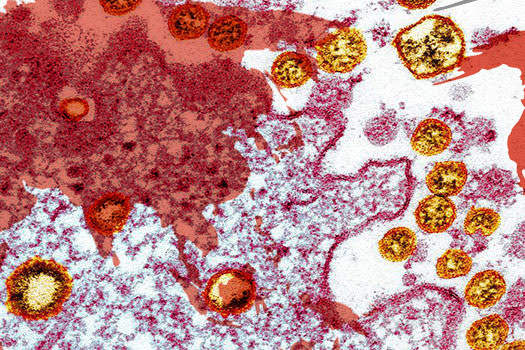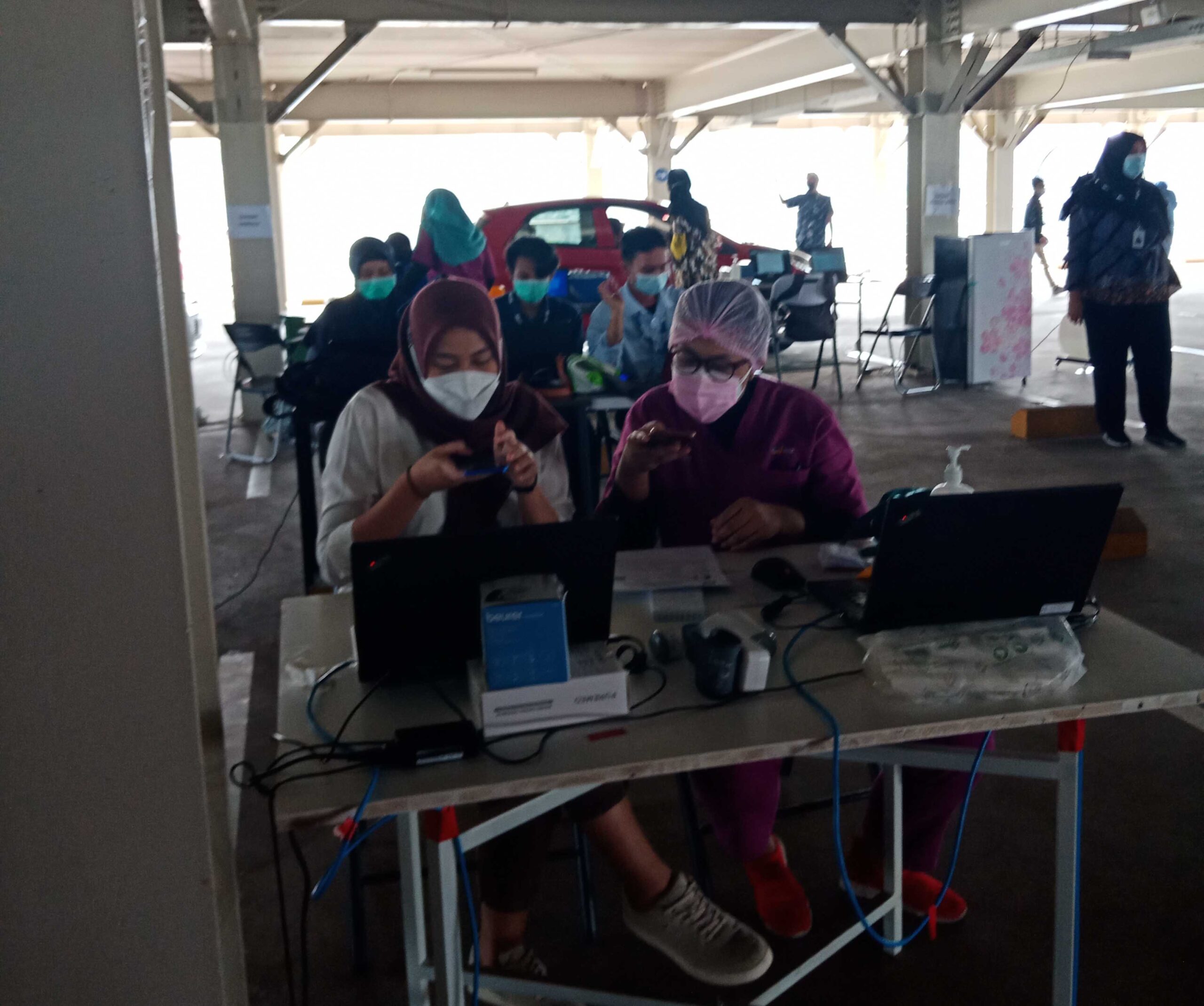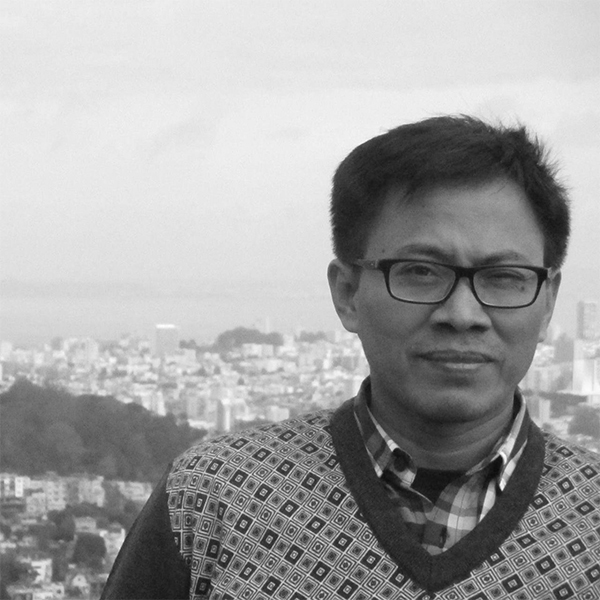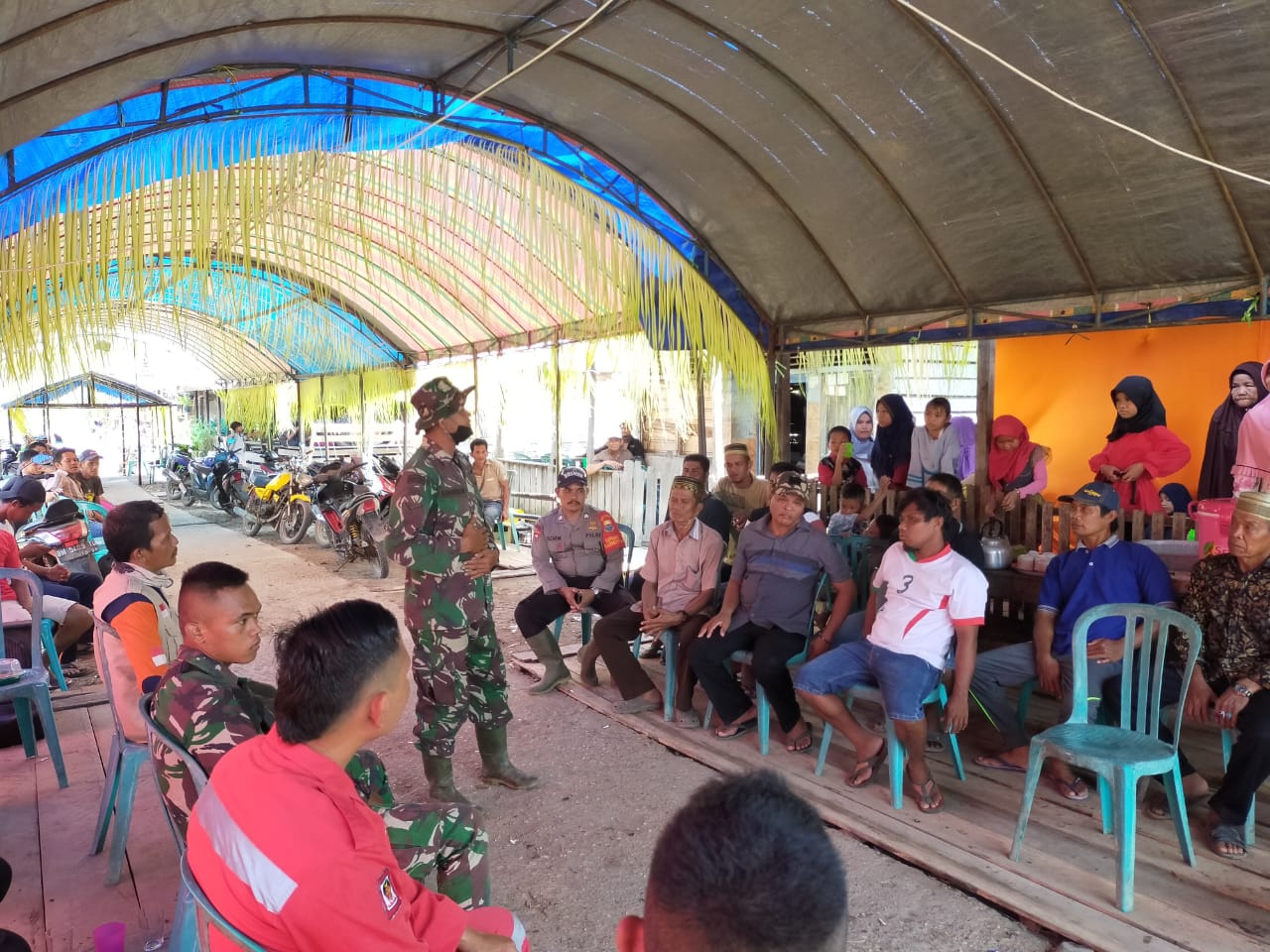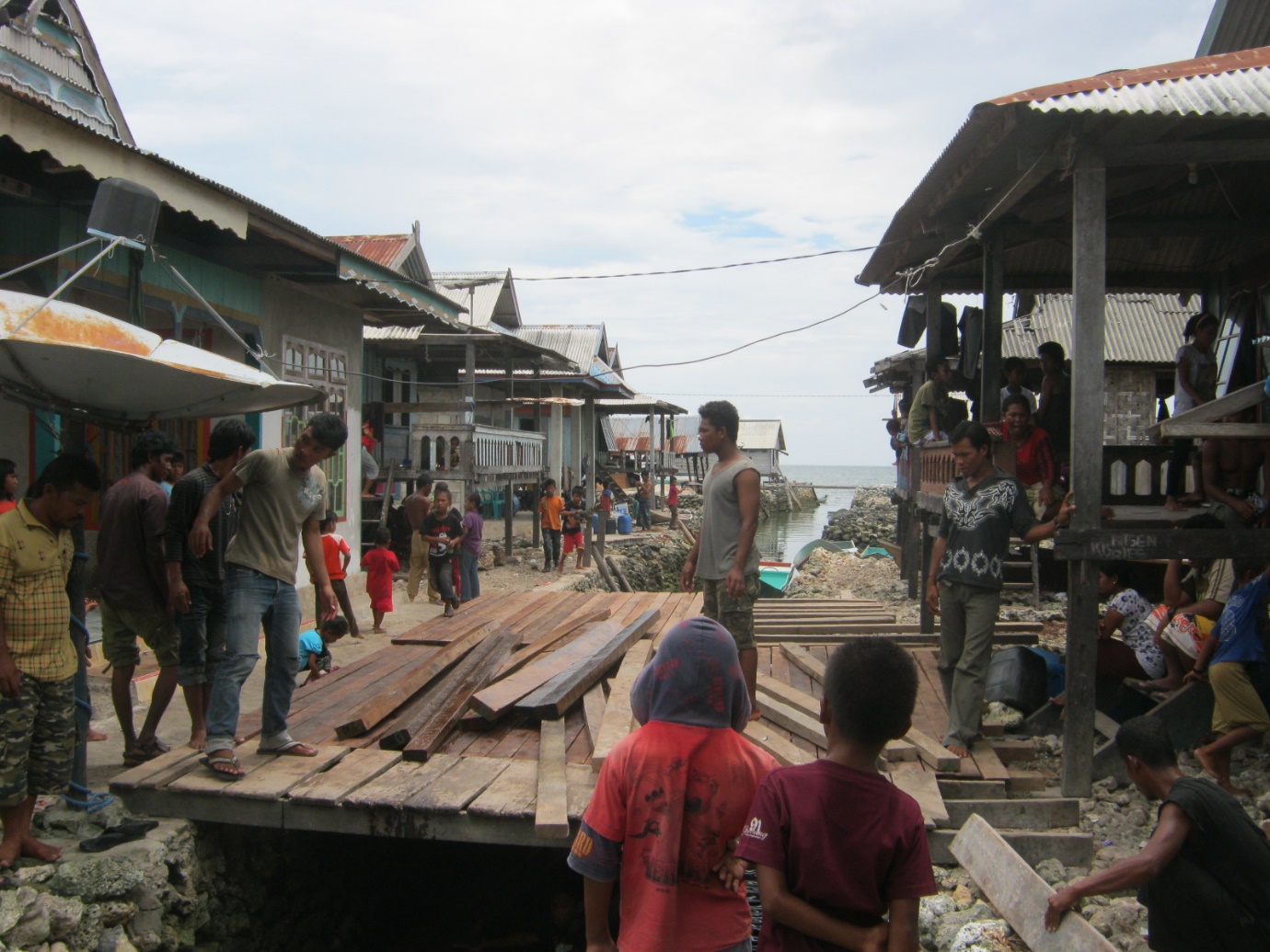To date, Indonesia has yet to deal efficiently with the COVID-19 pandemic and the situation remains critical compared to neighboring countries such as Singapore, Malaysia, Thailand or Vietnam (Asean Briefing 2020). Yet, what is the cause of Indonesia’s poor handling of the crisis? While this question can be answered with reference to multiple factors, this article highlights issues of weak government leadership.
Main Causes of the Problem
“Corona is a self-healing disease,” stated the Minister of Health (CNN Indonesia 2020a). “Coronavirus will not enter Indonesia, because the permit issuance is complicated,” exclaimed the Coordinating Minister for the Economy (Suara 2020a). “Against Corona, I drink empon-empon (spices consisting of ginger curcuma, turmeric or others) three times a day,” affirmed President Joko Widodo (Liputan6 2020c). “COVID-19 will not hit us, as we eat nasi kucing (a small portion of rice wrapped in banana leaves) every day,” joked the Minister of Transportation (Portonews 2020). These comments betray the central government’s unawareness of the extraordinary dangers of the disease.
Besides downplaying the gravity of the situation, the Indonesian government has been confused as to whether it should prioritize public safety or the economy. Before COVID-19, the Jokowi Government focused mainly on economic development. This was clear from the president’s inauguration speech (Kompas 2019) as well as from various programs and policies aimed to improve human resources and regulations for businesses and investments.
The pandemic, however, has interrupted these agendas, leaving the president and his advisors unprepared to adjust. Unsurprisingly, at the beginning of the pandemic, they often took conflicting decisions. In addition, communication, both between the government and the population as well as within the state apparatus itself, has been poor. Finally, communication to the public has been discouraging, lacking in empathy, and ultimately unable to inspire compliance to the official guidelines.
Furthermore, the government has not been open and willing to collaborate with third parties, contributing to a general lack of cooperation. Especially in the early days of the pandemic, they showed little appreciation towards people who took extraordinarily helpful initiatives, such as healthcare workers.
Inappropriate and Inconsistent Policies
Underestimating the dangers of the pandemic has led to gross mistakes, the first of which was ignoring warnings from the World Health Organization (WHO) and Harvard researchers (The Jakarta Post 2020).
The government did not immediately restrict international travel to and from China, including Wuhan. In fact, they kept on bringing in Chinese workers in order to complete projects in regions such as the Konawe District (Southeast Sulawesi), sparking resistance from locals and regional governments alike for the decision to keep allowing Chinese worker to entering the district (Kompas TV 2020).
While other countries closed their borders, the government expected that foreign tourists would continue to visit Indonesia. They even authorized a budget of Rp. 4.7 Trillion to increase numbers (Katadata 2020b), involving popular influencers in tourism campaigns.
Meanwhile, the government left it up to people when it came to finding protective equipment, from masks to hand sanitizers. Especially in the early days of the pandemic, the private sector satisfied these needs (Liputan6 2020a,b) with the state solely importing vegetables and fruits from China, as they did before (Tempo 2020b).
Rather than finding solutions, the government issued policies curbing freedom of expression. They announced the Government Regulation in Lieu of Acts (Perppu) No.1/2020 widely criticized for privileging oligarchs and mal-administration via ad-hoc exemptions from the law (CNN Indonesia 2020b,d). Article 27 (1), in particular, states that “the members of KSSK (the Committee of Financial System Stability), the secretary of KSSK, the members of secretariat of KSSK, and officials or employees of Finance Ministry, Bank of Indonesia, Financial Services Authority, Deposit Insurance Institution and other officials that have relations with the implementation this Perppu, cannot be persecuted if they have a good will (itikad baik) in conducting their duties and in line with the rules of the Perppu,” and (2) “[A]ll actions, including decisions resulted from this Perppu, are not subject to persecution by court” (Government Regulation in Lieu of Acts (Perppu) No.1/2020).
State policies were also inconsistent. For example, while travelling was prohibited, people under 45 could legally leave their houses (Kompas 2020c). The government allowed public transportation to operate as usual, only after having previously banned it (Tirto 2020c). In addition, they prohibited mudik (migrants’ return to their villages during Eid al Fitr), but allowed pulang kampung—another term for the same practice (Kompas 2020b).
Some policies have been implemented selectively. Take PSBB (Pembatasan Sosial Berskala Besar, PSBB or Large-Scale Social Restriction), based on Health Regulation Number 9/2020. This regulation restricts activities in COVID-infected areas by closing work places and schools as well as limiting religious activities, activities in public spaces, socio-cultural activities, transportation and other large-scale socio-economic activities, with the exception of necessary public services related to security, finance, health, communication and others (Minister of Health Regulation Number 9/2020).
In the early stages of its implementation, PSBB banned large gatherings in places of worship. It nonetheless remained flexible with regards to shopping and trading areas. Ironically, at the peak of the pandemic, Joko Widodo himself distributed food to people on the streets, transgressing the protocol (Suara 2020b, Tirto 2020a).
Inappropriate and poorly implemented policies failed to prevent casualties. The situation caused enormous frustration among medical workers, who protested. Gravediggers, who worked day and night to bury COVID-positive corpses, similarly voiced their disappointment via a campaign, “Indonesia Terserah,” “Indonesia, Whatever” (Kompas 2020a). This campaign reflected health worker’s disappointment with governmental indecisiveness over COVID-19 policies as well as frustration with their lack of clarity and inconsistency.
Weak Coordination
Relations between central and local governments have been also problematic. Torn between different perspectives over how to best act, in the early days of the pandemic (January and February 2020), some local governments implemented policies independently. They acted especially quickly in provinces such as West Java, where large infections were suspected following big-scale religious activities (Tirto 2020b).
Some local governments even planned to implement restrictions such as closing schools (however these were done so after PSBB). Areas including DKI Jakarta, West Java, Solo, and Tegal, issued even more stringent policies. Governor Anies Baswedan, for instance, announced his plan to lockdown Jakarta (Gatra.Com 2020) which was rejected by central government. Some regional governments also prepared for what might follow quarantine by planning comprehensive social assistance (Bantuan Sosial/Bansos) policies.
These measures eventually prompted the central government to respond. Aware of being late, however, their main preoccupation became asserting their upmost authority. They thus announced the “Task Force for Covid-19 Acceleration Response,” established to oversee all pandemic-related measures.
Government decided that they would not implement a lockdown, favoring instead “large-scale social distancing” (PSBB). They also issued new regulations, some of which contradicted local policies. The Jakarta government’s prohibition toward online taxi-bikes (ojek daring), for instance, was countered by a central policy allowing them to do business (Kompas 2020f). Moreover, in order to be eligible to implement PSBB, local governments were required to submit reports on the number of casualties: a bureaucratic procedure that caused yet more delays.
Due to coordination problems, not all communities benefitted from the Bansos policy, which originally aimed to offer assistance to the poor, causing more friction between the central and local governments. In one instance, the central government accused the Jakarta Governor Anies of being uncommitted to the policy. He responded, somewhat convincingly, by accusing the central government itself of misunderstandings (Kompas 2020d, Tempo 2020a, Kompas 2020e).
Poor coordination however, also occurred at the level of local governments. Tasked with providing an ambulance service for Surabaya citizens, for example, the Mayor of Surabaya Tri Rismaharini contacted the central government instead of the Governor of East Java (Tempo 2020c, Meredeka 2020a). However, indecisiveness in contacting the central instead of the provincial government resulted in an ineffective response from Surabaya toward the pandemic. As a result, the number of COVID victims in the city of Surabaya become the highest in the whole country (CNN Indonesia 2020a).
Coordination between state and non-state agents, such as healthcare workers, has been equally bad. This has been apparent since the beginning of the outbreak, when healthcare workers called for an immediate quarantine and the government could not even commit to physical distancing. Left without direction, workers eventually found ways around policies deemed inefficient. In some instances, they had to pay with their own lives (Katadata 2020a).
Poor coordination also occurred within grassroot religious groups. Initially, some of them resisted PSBB guidelines imposed by the government. They eventually complied—if ununiformly.
Ambiguous Participation of the People
Finally, episodes of disobedience—a reflection of distrust towards the state —have contributed to the situation. According to Lili Romli (2020), Indonesian people display their status by conspicuously helping those in need. Several organizations or individuals, including activists and artists, have taken things into their own hands by offering tens of billions of rupiah in aid relief, additionally providing masks or hand-sanitizers to healthcare workers (Liputan6 2020a,b).
More generally, however, people seem inclined to think that the emergency is already over. As a result of a now lengthy poor handling of the situation, people have become so skeptical of the official guidelines and regulations that they act based on self-interest. Even in designated “red zones,” people can be seen gathering in groups, breaking all protocols.
Even those who obediently stay at home are uncertain as to whether their most basic needs will be fulfilled. Ironically, the government is offering online pre-employment trainings, but no financial assistance (Merdeka 2020b). In fact, the improper distribution of Bansos -a program that dispersed food supplies package, including 15kg of rice, for each family- prompted people in many areas to ignore the “stay at home” caution, going out to make a living.
Understandably, the government’s organization of charity concerts has been widely criticized as both inconsistent (Vivanews 2020a, Kabar24 2020, Vivanews 2020b, CNN Indonesia 2020c) and insensitive, as the same funds could have helped poor communities in rural and remote areas.
In sum, the government’s requests for cooperation have failed to touch people’s hearts and minds. They have hardly compelled anyone to sacrifice personal interests for public welfare. While President Sukarno (1901-1970) could captivate millions of people through the radio, the Jokowi Government cannot even inspire trust with all the sophisticated media technologies at their disposal.
Conclusion
All these factors have ultimately led to an escalation in the number of COVID-19 infections. Empirical evidence shows that in countries where governments are trusted and obeyed, such as Vietnam (DW 2020), the pandemic has rapidly subsided. Unfortunately, this has not been the situation in Indonesia, which remains unprepared to deal with the current emergency as well as its future aftershocks, be it economic or socio-political. At the moment, Indonesia also lacks protocols on how to deal with similar pandemics in the future. The way things are now, the country is a time bomb, ready to explode.
1 July, 2020
References
- Asean Brifing. 2020. Coronavirus in Asia and ASEAN- Live Updates by Country. https://www.aseanbriefing.com/news/coronavirus-asia-asean-live-updates-by-country/. (Accessed 10 June, 2020).
- Ayosemarang.com. 2020. Anies Ajukan Rencana Lockdown Jakarta Kepada Presiden, DPRD Minta Perhatikan Syarat Ini (Anies submits Jakarta lockdown plan to the president, the Provincial parliament asked to pay attention to this condition) https://www.ayosemarang.com/read/2020/03/30/54466/anies-ajukan-rencana-lockdown-jakarta-kepada-presiden-dprd-minta-perhatikan-syarat-ini. (Accessed 9 June, 2020).
- BBC News Indonesia. 2020. Kecewa Kebijakan Covid-19: Indonesia Terserah, Pemerintah Minta Tenaga Medis “yang Telah Bertaruh Nyawa” Tidak Kecewa (Disappointed with COVID-19 Policy: Indonesia, Whatever, the government asks medical personnel “who have risked their lives” not to be disappointed). https://www.bbc.com/indonesia/trensosial-52631517. (Accessed 9 June, 2020).
- CNN Indonesia. 2020a. Calon Episentrum Corona Baru: Semarang, Surabaya dan Makassar (New Corona Epicenter Potential: Semarang, Surabaya and Makassar) https://www.cnnindonesia.com/nasional/20200429062046-20-498263/calon-episentrum-corona-baru-semarang-surabaya-dan-makassar (Accessed 9 June, 2020).
- CNN Indonesia. 2020b. Jalan Lapang Oligarki Ekonomi di Perppu Corona Jokowi (Open Road for Economic Oligarchy under Jokowi’s Corona Regulation in Lieu of Law). https://www.cnnindonesia.com/ekonomi/20200430142945-533-498909/jalan-lapang-oligarki-ekonomi-di-perppu-corona-jokowi. (Accessed 9 June, 2020).
- CNN Indonesia. 2020c. Konser BPIP Sepi Pendukung dikecam Warganet (Lack of Supporters in BPIP Concert, Condemned by Netizens). https://www.cnnindonesia.com/teknologi/20200519160655-192-504970/konser-bpip-sepi-pendukung-dikecam-warganet. (Accessed 9 June, 2020).
- CNN Indonesia. 2020d. Masinton Ungkap Alasan Perppu Corona Kepentingan Oligarki (Masinton Reveals Oligarchy’s Interests behind Corona Regulations in Lieu of Law) .https://www.cnnindonesia.com/nasional/20200418190706-32-494868/masinton-ungkap-alasan-perppu-corona-kepentingan-oligarki. (Accessed 9 June, 2020).
- CNN Indonesia. 2020e. Menkes, Virus Corona Penyakit yang Bisa Sembuh Sendiri (Health Minister: Corona virus is self-healing disease). https://www.cnnindonesia.com/nasional/20200302162005-20-479814/menkes-virus-corona-penyakit-yang-bisa-sembuh-sendiri. (Accessed 9 June, 2020).
- DW. 2020. How Vietnam is Winning its War on Corona cirus. https://www.dw.com/en/how-vietnam-is-winning-its-war-on-coronavirus/a-52929967. (Accessed 9 June, 2020).
- Gatra.Com. 2020. Begini Skema Lockdown Jakarta yang diusulkan Gubernur Anies. (Here is the Jakarta lockdown scheme, proposed by Governor Anies) https://www.gatra.com/detail/news/473825/kebencanaan/begini-skema-lockdown-jakarta-yang-diusulkan-gubernur-anies. (Accessed 9 June, 2020).
- Kabar24. 2020. Konser BPIP Tuai Kritik (BPIP Concert is Critiqued). https://kabar24.bisnis.com/read/20200516/79/1241524/konser-bpip-tuai-kritik. (Accessed 9 June, 2020).
- Kalteng Antara News. 2020. Sebanyak 52 Tenaga Media Terpapar COVID-19 di Papua (Around 52 Medical workers exposed to COVID-19 in Papua). https://kalteng.antaranews.com/berita/402204/sebanyak-52-tenaga-medis-terpapar-covid-19-di-papua. (Accessed 8 June, 2020).
- Katadata. 2020a. 44 Dokter dan Perawat RI Meninggal Dunia Akibat Virus Corona (44 Doctors and nurses passed away due to Corona virus). https://katadata.co.id/berita/2020/04/12/44-dokter-dan-perawat-ri-meninggal-dunia-akibat-virus-corona. (Accessed 9 June, 2020).
- Katadata. 2020b. Pemerintah Siapkan Rp. 47 Triliun Selamatkan Pariwisata dari Corona (Government Prepared Rp. 47 Trillion for saving tourism from Corona virus). https://katadata.co.id/berita/2020/02/25/pemerintah-siapkan-rp-47-triliun-selamatkan-pariwisata-dari-corona. (Accessed 9 June, 2020).
- Kompas TV. 2020. DPRD Konawe Tolak Kedatangan 500 Tenaga Kerja Asing (Konawe Parliament (DPRD) Refuses the arrival of 500 foreign workers). https://www.kompas.tv/article/79339/dprd-konawe-tolak-kedatangan-500-tenaga-kerja-asing. (Accessed 9 June, 2020).
- Kompas. 2019. Naskah Lengkap Pidato Presiden Joko Widodo dalam Pelantikan Periode 2019-2024 (The script of President Joko Widodo’s oration for the 2019-2024 term inauguration). Kompas. 20 Oktober. https://jeo.kompas.com/naskah-lengkap-pidato-presiden-joko-widodo-dalam-pelantikan-periode-2019-2024. (Accessed 9 June, 2020).
- Kompas. 2020a. Indonesia Terserah, Ekspresi Kekecewaan dan Bentuk Protes Kepada Pemerintah (“Indonesia, Whatever,” expression of disappointment and ways to protest against the Government). Kompas. 20 Mei. https://www.kompas.com/tren/read/2020/05/20/060200565/indonesia-terserah-ekspresi-kekecewaan-dan-bentuk-protes-kepada-pemerintah-. (Accessed 9 June, 2020).
- Kompas. 2020b. Jokowi Bedakan Mudik dan Pulang Kampung, Pemerintah Diminta Tegas larang Keluar Zona Merah. (Jokowi differentiates between Mudik (migrants’ return to their villages during Eid al Fitr ) and Pulang Kampung (migrants’ return to their villages), Government was asked to be firm on the prohibition to leave the red zone) Kompas. 23 April. https://nasional.kompas.com/read/2020/04/23/11051321/jokowi-bedakan-mudik-dan-pulang-kampung-pemerintah-diminta-tegas-larang. (Accessed 9 June, 2020).
- Kompas. 2020c. Kebijakan Kontroversial Pemerintah Saat Pandemi Corona, Apa Saja? (Controversial Government policies during the Corona pandemic era, what is on the list?). Kompas. 12 Mei.https://www.kompas.com/tren/read/2020/05/12/125401165/3-kebijakan-kontroversial-pemerintah-saat-pandemi-corona-apa-saja?page=3. (Accessed 9 June, 2020).
- Kompas. 2020d. Penjelasan Wagub DKI Soal Tumpang Tindih Penerima Bansos yang Sempat Dikeluhkan Menko PMK. Kompas. 13 Maret. (Explanation by Jakarta’s Vice Governor on the overlap of social assistance recipients who complained to the coordinating minister for human development and cultural affairs) https://megapolitan.kompas.com/read/2020/05/13/09124471/penjelasan-wagub-dki-soal-tumpang-tindih-penerima-bansos-yang-sempat. (Accessed 9 June, 2020).
- Kompas. 2020e. Polemik Bansos DKI Jakarta dari Persoalan Anggaran hingga Tumpang Tindih Data. (Polemic on social assistance of Jakarta province: from budgetary issues to data overlap) Kompas. 9 Mei. https://www.kompas.com/tren/read/2020/05/09/185200465/polemik-bansos-dki-jakarta-dari-persoalan-anggaran-hingga-tumpang-tindih. (Accessed 9 June, 2020).
- Kompas. 2020f. Resmi Anies Larang Ojek Online Bawa Penumpang (Anies officially forbids online Taxi-Bikes to bring passengers). Kompas. 14 April. https://otomotif.kompas.com/read/2020/04/14/070200115/resmi-anies-larang-ojek-online-bawa-penumpang-selama-psbb. (Accessed 9 June, 2020).
- Lili Romli. 2020. Covid-19 dan Modal Sosial (Covid-19 and social capital). http://www.politik.lipi.go.id/kolom/kolom-2/politik-nasional/1401-covid-19-dan-modal-sosial. (Accessed 9 June, 2020).
- Liputan6. 2020a. Aksi 5 Artis Indonesia Bantu Lawan Corona, Ada yang capai Rp. 5 Milyar (Action five Indonesian artists help to fight Corona, there is one action which collects Rp. 5 Billion) https://hot.liputan6.com/read/4204899/aksi-5-artis-indonesia-bantu-lawan-corona-ada-yang-capai-rp-2-miliar. (Accessed 9 June, 2020).
- Liputan6. 2020b. Data Per 9 April 2020, Total Sumbangan Masyarakat untuk Penanganan Covid-19 Rp 193 Miliar (Data for April 9 2020, Rp. 193 billion. People aid to deal with Covid-19). https://www.liputan6.com/news/read/4223934/data-per-9-april-2020-total-sumbangan-masyarakat-untuk-penanganan-covid-19-rp193-miliar. (Accessed 8 June, 2020).
- Liputan6. 2020c. Tangkal Virus Corona Baru, Presiden Jokowi Minum Jamu Sampai 3 Kali Sehari (To ward of new Corona Virus, President Jokowi drinks herbal tea three times a day). https://www.liputan6.com/lifestyle/read/4200760/tangkal-virus-corona-baru-presiden-jokowi-minum-jamu-sampai-3-kali-sehari. (Accessed 8 June, 2020).
- Merdeka. 2020a. Pemprov Jating Tanggapi Kemarahan Risma, Mobil Lab PCR Tidak Hanya untuk Surabaya. (Province Government responds to Risma’s anger, PCR Lab car is not only for Surabaya) https://www.merdeka.com/peristiwa/pemprov-jatim-tanggapi-kemarahan-risma-mobil-lab-pcr-tidak-hanya-untuk-surabaya.html. (Accessed 9 June, 2020).
- Merdeka. 2020b. Survei: Publik Butuh Sembako dan Bantuan Tunai Bukan Pelatihan Online (Survey: People need basic foods and cash assistance, not online training). https://www.merdeka.com/politik/survei-publik-butuh-sembako-dan-bantuan-tunai-bukan-pelatihan-online.html. (Accessed 9 June, 2020).
- Portonews. 2020. Covid 19 Enggak Masuk Karena Setiap Hari Makan Nasi Kucing, Candaan Menhub Sumadi (COVID-19 will not hit us, as we eat Nasi Kucing, jokes Minister of Transportation Sumadi). https://www.portonews.com/2020/laporan-utama/covid-19-enggak-masuk-karena-setiap-hari-makan-nasi-kucing-itu-candaan-menhub-sumadi/.(Accessed 9 June, 2020).
- Republika. 2020. Koh Steven, Mualaf yang Jual Semua Harta Demi Tangani Corona, Part 1 (Bro Steven, an Islamic convert sold his properties for handling corona. Part 1). Republika. 3 Mei. https://republika.co.id/berita/q9pf0k366/koh-steven-mualaf-yang-jual-semua-hartademitangani-corona-part1. (Accessed 9 June, 2020).
- Suara. 2020a. Kelakar Menteri Airlangga: Izinnya Berbelit-Belit Virus Corona Tak Masuk (Minister Airlangga jokes: Coronavirus will not enter Indonesia as permit issuance is complicated). https://www.suara.com/news/2020/02/15/141802/kelakar-menteri-airlangga-izinnya-berbelit-belit-virus-corona-tak-masuk. (Accessed 10 June, 2020).
- Suara. 2020b. Viral Jokowi Bagi Sembako dari Mobil, Publik: Sekelas Dia Caranya Begini (Viral, Jokowi dispersed basic food from his car. That’s his way as a person in his position). https://www.suara.com/news/2020/04/09/192646/viral-jokowi-bagi-sembako-dari-mobil-publik-sekelas-dia-caranya-begini. (Accessed 8 June, 2020).
- Tempo. 2020a. Anies Baswedan Jelaskan Kronologi Langkah DKI Jakarta Soal Bansos. (Anies Baswedan explains the chronology of social assistance steps in the DKI Jakarta province) Tempo. 8 Mei. https://metro.tempo.co/read/1339915/anies-baswedan-jelaskan-kronologi-langkah-dki-soal-bansos, (Accessed 9 June, 2020).
- Tempo. 2020b. Impor Sayur Capai Rp 11, 55 T, Faisal Basri: Saya Kaget. (Rp. 11.55 trillion for importing vegetables, Faisal Basri: I was surprised) Tempo. 23 Mei. https://bisnis.tempo.co/read/1345351/impor-sayur-capai-rp-1155-t-faisal-basri-saya-kaget/full&view=ok. (Accessed 9 June, 2020).
- Tempo. 2020c. Polemik Mobil PCR di Surabaya: Risma Marah, Khofifah Sumringah (Polemic surrounding the PCR car in Surabaya: Risma outraged, Khofifah happy). Tempo. 30 Mei. https://nasional.tempo.co/read/1347803/polemik-mobil-pcr-di-surabaya-risma-marah-khofifah-sumringah/full&view=ok. (Accessed 8 June, 2020).
- The Jakarta Post. 2020. “It’s Insulting”: Indonesia criticizes US study concerns over no Coronavirus case. The Jakarta Post. 12 February. https://www.thejakartapost.com/news/2020/02/12/its-insulting-indonesia-criticizes-us-study-concerns-over-no-coronavirus-cases.html. (Accessed 9 June, 2020).
- Tirto. 2020a. Bagi-Bagi Sembako, Gimik Jokowi yang Melanggar Imbauannya Sendiri (Distributing basic food, Jokowi’s gimmick that crosses his own plea). https://tirto.id/bagi-bagi-sembako-gimik-jokowi-yang-melanggar-imbauannya-sendiri-eMZw. (Accessed 9 June, 2020).
- Tirto. 2020b. Mengurai Penyebaran COVID-19 Klaster Seminar Keagamaan di Bandung (Analyzing Covid-19 spread in the religious seminar cluster in Bandung) https://tirto.id/mengurai-penyebaran-covid-19-klaster-seminar-keagamaan-di-bandung-eJGU. (Accessed 9 June, 2020).
- Tirto. 2020c. Menhub: Mulai 7 Mei Semua Transportasi Umum Beroperasi Normal Lagi (Ministry of Transportation: From May 7, all public transportation will operate as usual). https://tirto.id/menhub-mulai-7-mei-semua-transportasi-umum-beroperasi-normal-lagi-fllh. (Accessed 9 June, 2020).
- Vivanews. 2020a. Konser BPIP Tak Patuhi Jaga Jarak, Ketua MPR: Semua Salah Saya (BPIP concert breaks the Distance Rules, The Chairperson of People Consultative Assembly (MPR): They are All My Mistake). https://www.vivanews.com/berita/nasional/49830-konser-bpip-tak-patuhi-jaga-jarak-ketua-mpr-semua-salah-saya?medium=autonext. (Accessed 8 June, 2020).
- Vivanews. 2020b. MUI Kritik Konser Amal Corona (Indonesia Ulama Assembly criticizes Corona charity concerts). https://www.vivanews.com/berita/metro/49732-mui-kritik-konser-amal-corona?medium=autonext. (Accessed 8 June, 2020)
 Prof. Dr. Firman Noor is a senior researcher at the Research Center for Politics, Indonesian Institute of Sciences. He is also Director of Research at the Center for Politics, Indonesia Institute of Sciences and the Chairman of the Association of Indonesia Political Sciences (AIPI). His studies focus on political parties, election, democracy, and political representation. He was member of and researcher in several NGOs and research institutions engaging with democracy and election development such as Center for Information and Development Studies dan Center for Electoral Reform. He is also a lecturer at the Department of Political Sciences, Faculty of Social and Political Sciences, University of Indonesia. He graduated from Department of Political Sciences, Faculty of Social and Political Sciences, University of Indonesia for his BA. He then continued his study for master degree at Faculty of Asian Studies, Australian National University (ANU) and received his PhD in 2012 from the School of Social Sciences and Humanities, University of Exeter. He was a research fellow at the University of Exeter (2016-2017). He has published two books “Fragmentation and Cohesion of Islamic Parties in Indonesia: A Case Study of PKB and PKS in the First Decade of Reform Era,” and “Quo Vadis Demokrasi kita?”(Quo Vadis Our Democracy?).
Prof. Dr. Firman Noor is a senior researcher at the Research Center for Politics, Indonesian Institute of Sciences. He is also Director of Research at the Center for Politics, Indonesia Institute of Sciences and the Chairman of the Association of Indonesia Political Sciences (AIPI). His studies focus on political parties, election, democracy, and political representation. He was member of and researcher in several NGOs and research institutions engaging with democracy and election development such as Center for Information and Development Studies dan Center for Electoral Reform. He is also a lecturer at the Department of Political Sciences, Faculty of Social and Political Sciences, University of Indonesia. He graduated from Department of Political Sciences, Faculty of Social and Political Sciences, University of Indonesia for his BA. He then continued his study for master degree at Faculty of Asian Studies, Australian National University (ANU) and received his PhD in 2012 from the School of Social Sciences and Humanities, University of Exeter. He was a research fellow at the University of Exeter (2016-2017). He has published two books “Fragmentation and Cohesion of Islamic Parties in Indonesia: A Case Study of PKB and PKS in the First Decade of Reform Era,” and “Quo Vadis Demokrasi kita?”(Quo Vadis Our Democracy?).
Citation
Firman Noor. 2020. “Indonesia’s problematic response to COVID-19” CSEAS NEWSLETTER, 78: TBC.

